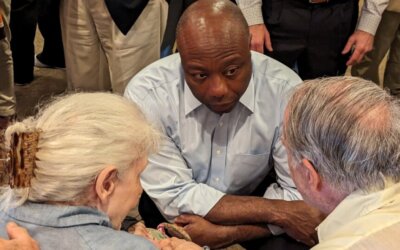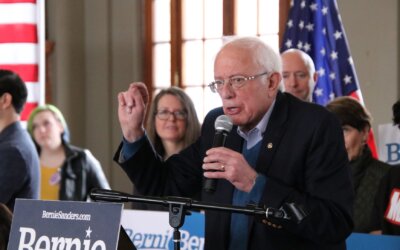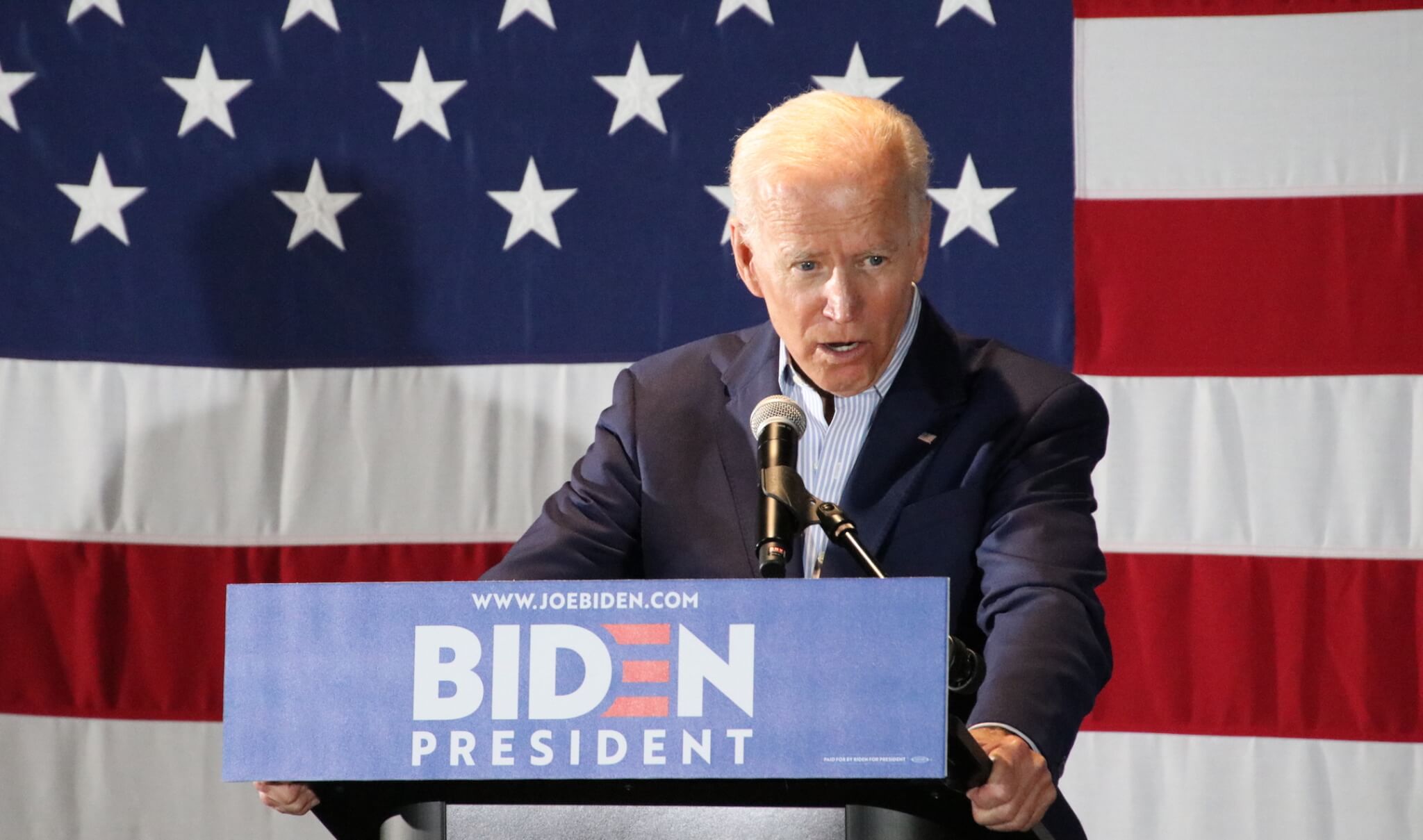
Health care discussions have proven to be a major flashpoint for the 2020 Democratic candidates, leading to unsure endorsements on the debate stage, redacting debate answers and nuanced hesitancy on Medicare for All.
A majority of the candidates are now offering health care plans other than an immediate Medicare for All system, most choosing instead to support the position of developing a public option as sort of a test run at a larger single-payer care system.
On Monday, AARP and the Des Moines Register kicked off a week full of candidate forums to discuss health care plans, combatting rising pharmaceutical drug costs, social security and long-term care. The events are offering the candidates a chance to explain where they stand in regard to Medicare for All, on a big, public stage, for the first time since the debates.
While the ‘hand-raising’ questions at the first round of Democratic debates were ever-so-informative, they don’t seem to have been an accurate depiction of how candidates would approach health care. Some candidates are for Medicare for All straight away, some oppose it entirely and others would like to see the government slowly transition to it.
Most polling has shown that Democratic voters overwhelmingly back a Medicare for All-type system, as do usually a majority of Americans, but those levels of support can change base on how you frame it.
Pushback From The Jump
Former Rep. John Delaney and former Gov. John Hickenlooper have vocally opposed Medicare for All since entering the race. While both candidates remain low in the polls, their stances, which seemed outside the norm a few months ago, now seem to be more widely accepted across the field of Democratic candidates.
Delaney has stuck to his position that Medicare for All is a bad position for Democrats to take in the general election, as it will open up the Democrats to criticism that they are “socialist,” while also being perceived as a threat to destroy a large job provider in the U.S. – the private insurance industry.
“Medicare for all may sound good,” Delaney said in California in early June. “But it’s actually not good policy, nor is it good politics.”
He does want to get to universal health care coverage in America, through a public plan that people under 65 would be automatically enrolled in, but could opt out. Those who do opt out would get a tax credit to help buy their own, and private insurance as an option would be preserved.
Hickenlooper has also been against Medicare for All since he joined the race, instead pushing for Medicare and Medicaid expansion, and the development of a public option. While he believes a single-payer system may be the end result down the line, he says getting to that point should be “an evolution, not a revolution.”
“A public option, if it’s done properly, allows people the choice to migrate to that public option. And if it’s successful, and it works for people, more people will migrate. As it grows in size, the cost will come down, the quality will improve, more people will migrate,” Hickenlooper explained at the forum. “Ultimately, you could end up with a Medicare for All-type solution.”
Rather than mandating a quick switch to Medicare for All, Hickenlooper has proposed that the U.S. create a public option for those who can’t afford private insurance and grow the system with increased enrollment over time until a solid framework has been laid. Only then, he says, should we begin talking about a single-payer system.
Hickenlooper, Sen. Cory Booker, and former Vice President Joe Biden all supported this path at the first candidate forum on Monday, while Sen. Klobuchar was unsure whether or not the U.S. would ever embrace a single-payer system. Klobuchar did note with a chuckle that many of the other candidates’ public option plans were the same as the one she’s been backing for years.
[inline-ad id=”0″]
Where Others Stand
Booker was the first candidate to speak at the forums, and he made it clear that the shift to government-run healthcare should be a careful one. He is an advocate for Medicare for All, but says making care better and more accessible should be the focus, rather than focusing on the policy title.
“Before we take tens of millions of people off the health care plan that they like, let’s prove that we can create a viable government option,” Booker explained.
While Booker has supported Medicare for All during his Senate tenure, he has made it clear on the campaign trail that he believes an instantaneous switch from our current system to an entirely government-run system could be difficult.
Klobuchar similarly supports a public option, but believes it should be done by tweaking the system we have in place, rather than revamping it.
“We must protect the Affordable Care Act,” Klobuchar said. “I think we need to expand on it and provide a public option … but it would concern me to kick half of America off their insurance in four years, which is what the other plan [Medicare for All] says.”
When asked as a follow up whether or not she sees the U.S. health care system ever becoming a single-payer system, Klobuchar said, “We’re always going to have some private insurance as part of the American health care system, but I do think that those prices are too high.”
Klobuchar and Delaney are not alone in their thinking that embracing Medicare for All could prove a difficult policy stance for Democrats in the election. Colorado Sen. Michael Bennet explicitly stated this weekend that he believes the Democrats will lose states like Colorado if Bernie Sanders is the nominee, citing his healthcare stance as being too aggressive.
For context, Colorado held a referendum in 2016 during the general election on Amendment 69, which, if passed, would have instituted a state-run health care program called ‘ColoradoCare.’ 79% of voters shot it down.
Protecting The ACA
“It’s nothing against Bernie,” Bennet said to reporters on Sunday at the Progress Iowa Corn Feed, explaining that, from his experience, voters in Colorado would be concerned about Medicare for All’s impact on their access to affordable, quality care.
Instead, Bennet has proposed his own plan, titled Medicare-X, which, similar to Klobuchar’s stance, would restore and preserve the ACA, but provide a public option. Bennet worked on the Medicare-X plan with Democrat Tim Kaine from Virginia, and the two introduced the legislation in the Senate in October before re-introducing it earlier this year.
“People in Colorado would love to hear a candidate say, ‘What we need is universal health coverage in the country, and the way we’re going to get to that is by giving everybody in America a choice,’” Bennet explained.
Vice President Biden was the last to take the stage at the first AARP forum, and showed support for creating a public option.
“It took seven presidents to get to the point where we could get the Affordable Care Act passed,” Biden explained. “What I would do, immediately, is restore all the cuts that have been made [under the Trump Administration] and provide a public option.”
Biden said that this would not only increase coverage and cut costs for healthcare recipients, but also get rid of the costs and red tape associated with enrolling.
“What it would do, is it would get us to 99.9% coverage. Anyone who is eligible for Medicaid would automatically be enrolled in this option for no cost in the exchange,” Biden said. “And everyone’s numbers would be reduced in terms of costs to get into the exchange.”
But Biden’s message seems to have changed from where he stood just mere weeks ago at the first round of Democratic debates.
Debate Positions – Still the Plan?
Biden seemed unsure at the debate when candidates were asked to raise their hand in support of eliminating private insurance. He started to raise his hand after hesitating and looking across the stage. But at the forum, he seemed very sure that getting rid of private insurance was unwise politically and policy-wise.
Sen. Kamala Harris was one of the other candidates who raised her hand during this debate question, alongside Biden and Sanders, but said the next day that she misheard the question.
Harris said she heard the question as, “Would you give up your private insurance for that option?” To which she said yes.
But in terms of legislation, she said she would like to provide a public option and expand coverage to include dental, vision and hearing care, which are not currently covered, but keep private insurance as a supplement to government-run care.
So, Who Actually Supports Medicare For All?
Up to this point, the number of candidates who back an immediate Medicare for All push seems to be dwindling. Many of the candidates describe themselves as proponents or advocates for Medicare for All, with some of the senators having proposed legislation during their tenure or signed on to Bernie Sanders’ bill, but most of them are not running with it as their campaign’s main health care plan.
Elizabeth Warren and Sanders remain steadfast backers of a full Medicare for All transition, even if Warren has noted that there’s many ways to get to there.
Bill de Blasio also raised his hand at the debate, and did not shy away from challenging other candidates on their health care stances, arguing that the private insurance system is broken.
“Private insurance is not working for tens of millions of Americans,” de Blasio said. “When you talk about the co-pays, the deductibles, the premiums, the out-of-pocket expenses: it’s not working. How can you defend a system that’s not working?”
Starting Line asked de Blasio how he planned to message his proposal in a way that manages public concern surrounding a health care-system transition.
“I think one of the reasons that a universal health care system will win the day in the end is, as people are exposed to the ideas like, ‘What if you could actually get dental care? What if you could actually get mental health care? What if you had the kind of situation that would cover all of these costs instead of that bankrupting your family?’” de Blasio said. “I think more and more people are going to be attracted to that. We have to focus on an incremental approach and address the concerns along the way.”
by Josh Cook
Photo by Julie Fleming
Posted 7/18/19
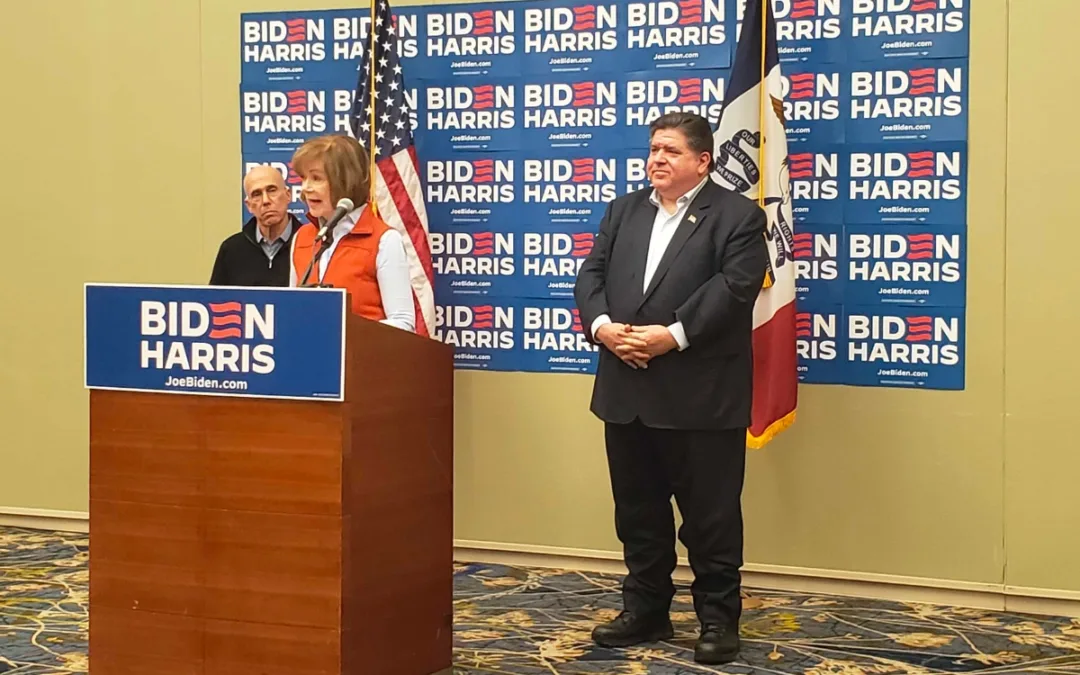
Original, heels or boots: Pritzker says leading Republicans are all MAGA
Illinois Gov. JB Pritzker said all three leading candidates in the Iowa GOP caucus—Donald Trump, Nikki Haley, and Ron DeSantis—represent the same...
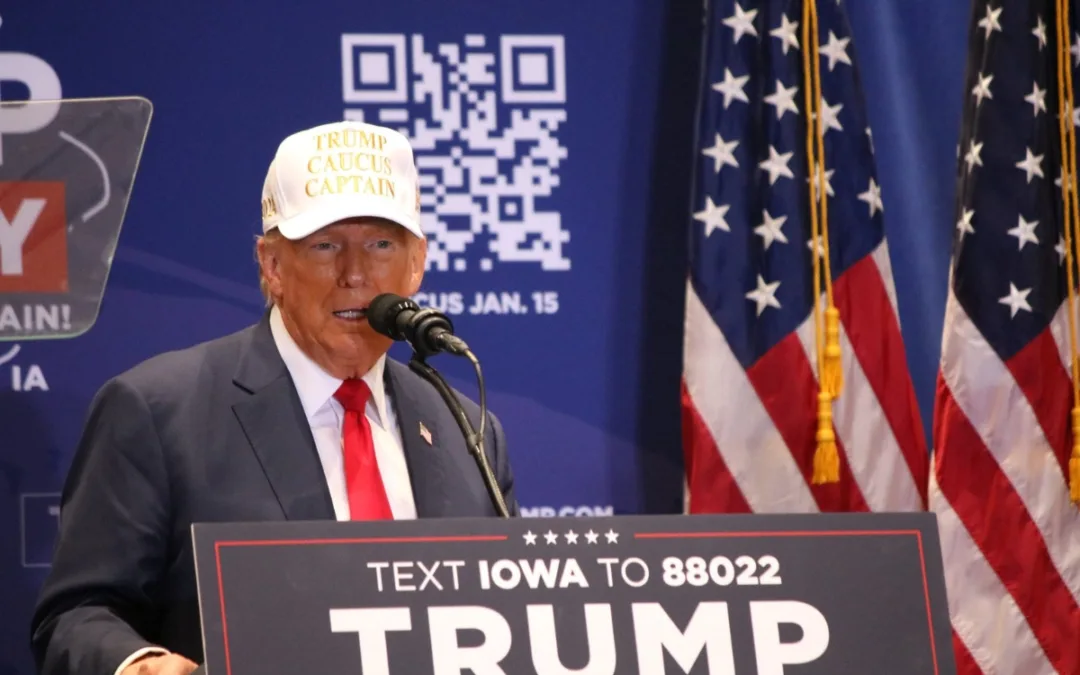
Trump tells supporters it is worth dying to caucus for him
Former President Donald Trump continues to encourage his massive base to turn out in droves for him during Monday’s Republican caucus and told an...

Climate change protesters disrupt Ron DeSantis event
Climate protesters disrupted a Gov. Ron DeSantis campaign event in Ames on Thursday night. Three protesters were escorted out of the room at...

Evangelical leaders predict huge caucus turnout, downplay endorsements
Iowa caucus candidates have racked up big-name endorsements—including a notable last-minute flip flop—but one evangelical leader said none of that...

We went to Vivek Ramaswamy’s ‘Vektoberfest.’ Here’s what we saw
As I sat on a park bench eating a bacon-grilled cheese sandwich, drinking an Exile Ruthie straight from the tap, and chit-chatting with a few folks,...
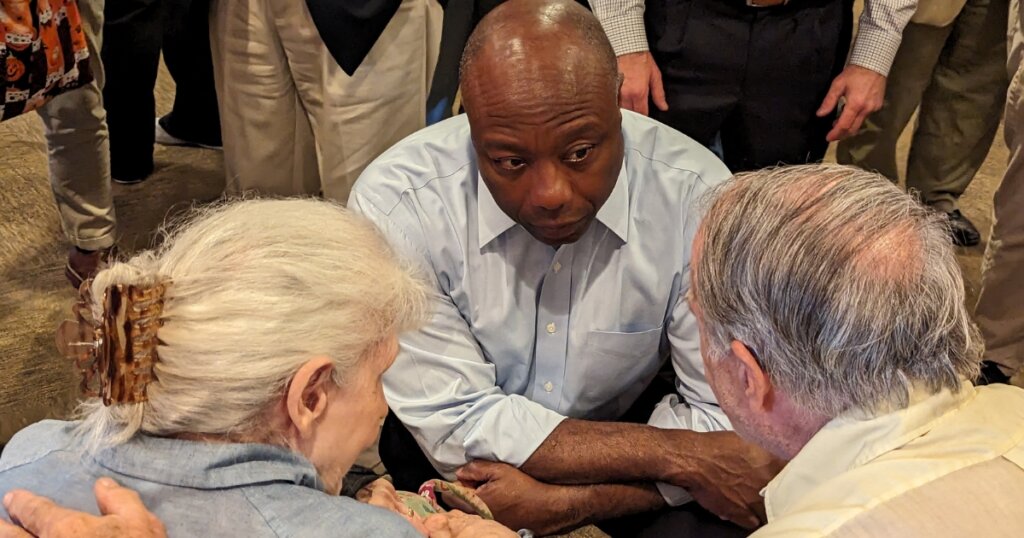
Tim Scott says kids need more exposure to conservatism
While many Republicans across the country have spent the last few years arguing that public schools are being used to indoctrinate kids into leftist...


